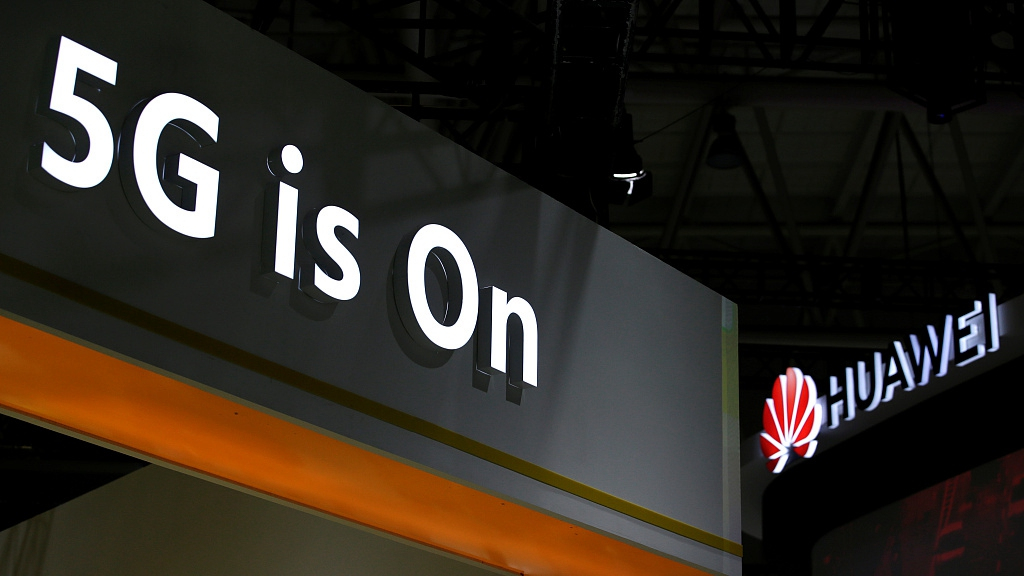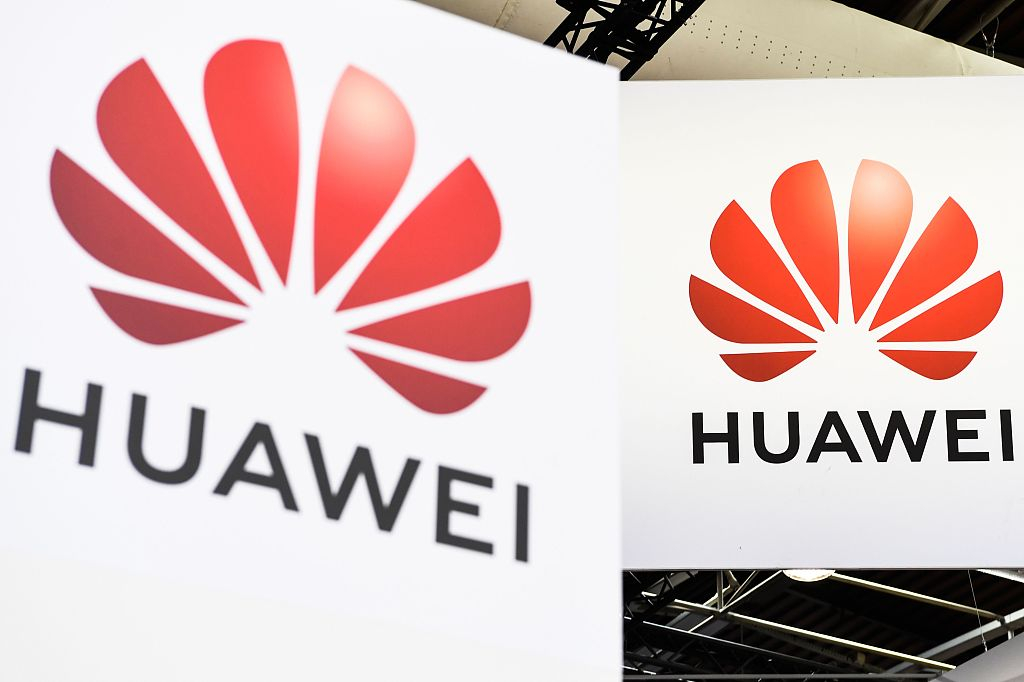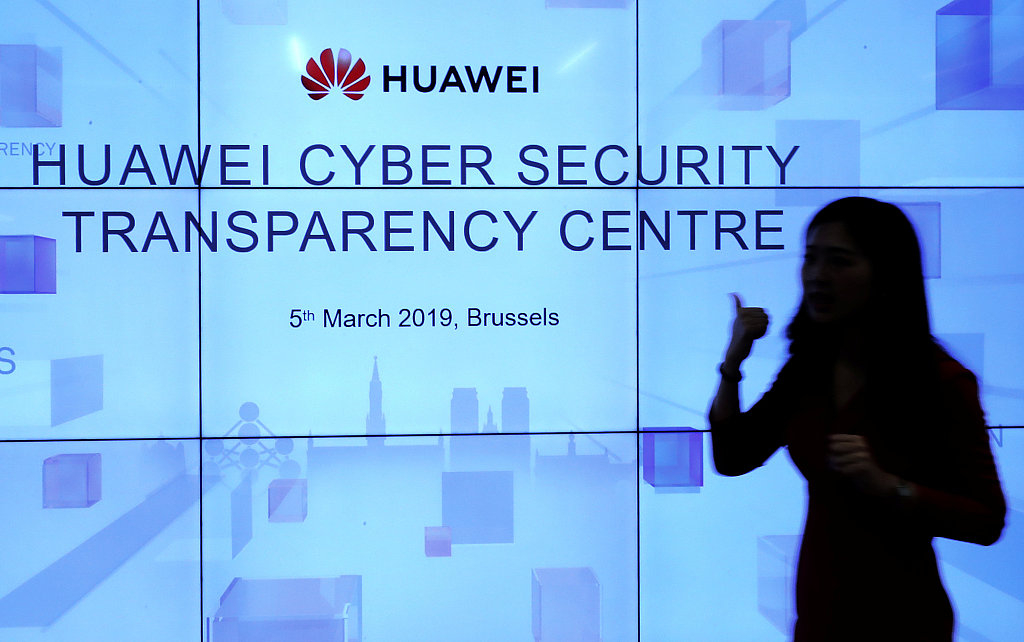
Opinion
08:13, 19-May-2019
European allies reject Trump's Huawei tech war
Updated
21:23, 19-May-2019
Tom Fowdy

Editor's Note: Tom Fowdy, who graduated from Oxford University's China Studies Program and majored in politics at Durham University, writes about international relations focusing on China and the Democratic People's Republic of Korea. The article reflects the author's opinion, and not necessarily the views of CGTN.
In the aftermath of U.S. President Donald Trump's executive order imposed ban on Huawei telecommunications equipment, as well as its blacklisting as an “entity” by the U.S. Department of Commerce, key allied countries in Europe have rejected any suggestions of following suit with Washington on any of his latest moves.
Questioned on Thursday on the firm based in the south China city of Shenzhen, French President Emmanuel Macron stated, “Our perspective is not to block Huawei or any company; it is to preserve our national security and European sovereignty. But I think launching now a technological war or a trade war is not appropriate”.

Logos of the Chinese telecome group Huawei is displayed during the Vivatech startups and innovation fair, in Paris, France, on May 16, 2019. /VCG Photo
Logos of the Chinese telecome group Huawei is displayed during the Vivatech startups and innovation fair, in Paris, France, on May 16, 2019. /VCG Photo
In a similar fashion, chancellor of Germany Angela Merkel also urged “Europe to maintain its own course” and warned the continent “must not be dragged into the trade dispute between China and the United States”.
The comments from both leaders come as especially significant as the White House imposed ban was widely interpreted as an attack on the continent for refusing to heed to Washington's confrontational Huawei lobbying, a White House spokesman having said the recent ban was an intentional “message to the bloc”.
Why have Europe refused to follow suit with the United States on Huawei? Despite the Washington analytical community having got their hopes up that the continent was moving towards a “tougher” stance against Beijing, Europe's overall approach to China is driven by reason and a reasoned calculation of national interest, rather than the hysterical, sensationalized and dogmatic trope of Washington.
In doing so, whilst European leaders have not dismissed the issue of national security in the construction of their 5G internet networks, they have opted for a balanced and empirical approach which ultimately acknowledges that Huawei's participation is beneficial, with risks being manageable. Given this, Washington's behavior as a whole has been perceived as over the top, reactionary and irrational. His latest move changes nothing.
The foreign policies of European states, as well as the collective input of such countries into the European Union as a whole seek an approach towards relations with China that is led by reason, rather than dogma and cold war mentalities.
Whatever differences and disagreements there may be, Europe ultimately recognizes that stable and meaningful economic ties with China are to the continent's collective interest and to jeopardize such in the manner which Donald Trump is pursuing poses tremendous risks.
Whilst some voices in the bloc have called for a more unified approach towards Beijing, this is ultimately directed towards leveraging the continent's own national interest in the stake of negotiations, it is not a call for confrontation or a struggle for global hegemony as Washington desires.
In light of this approach, when Washington demanded European allies exclude Huawei from their 5G networks under dubious claims of “espionage”, the nations of the continent responded not by jumping the gun, but with a reasoned view towards assessing their own national and security interests.

People takes pictures of Huawei's new foldable 5G smartphone MateBook X Pro on the second day of Mobile World Congress 2019, in Barcelona, Spain, February 26, 2019. /VCG Photo
People takes pictures of Huawei's new foldable 5G smartphone MateBook X Pro on the second day of Mobile World Congress 2019, in Barcelona, Spain, February 26, 2019. /VCG Photo
In stark contrast to the Trump administration's self-destructive behavior, European nations acknowledged that Huawei's expertise and technology were offering not only a leading, but affordable route to 5G infrastructure development. Poland stated that it simply could not afford to ban Huawei.
Not only that, but numerous nations found in their own security reviews that there was no serious evidence for the risks Washington claimed came with the company. This included Germany and Belgium.
Any present risks were in fact manageable, and did not negate the benefits of using Huawei as a whole. In turn, countries throughout the bloc concluded that to ban Huawei would be a costly and counterproductive move.
Given this, countries throughout the bloc felt that Washington's position was dogmatic and unnecessary, and refused to follow suit on the grounds that exclusion was contrary to their national interests. As a result, no country on the continent has banned Huawei.

A woman visits the Huawei Cyber Security Transparency Centre in Brussels, Belgium March 5, 2019. /VCG Photo
A woman visits the Huawei Cyber Security Transparency Centre in Brussels, Belgium March 5, 2019. /VCG Photo
Instead, the response from European leaders has been that the bloc should take its own path, and that in turn the Trump administration should respect Europe's sovereign decisions.
Thus as a whole, the comments from Macron and Merkel indicate that Trump's Huawei order is in fact being viewed as an attack on European interests and yet another attempt by Washington to force its position upon the bloc unilaterally, than to respect its perspective.
Ultimately, the European Union will continue to pursue its foreign relations based upon a balanced assessment of its national interests; this involves allowing Huawei to participate in the construction of its 5G infrastructure.
It is not for America to dictate to Europe, and if Trump continues to treat the continent contemptuously, transatlantic ties will only further deteriorate as the EU is left with no option but to stand up for itself.
(If you want to contribute and have specific expertise, please contact us at opinions@cgtn.com)

SITEMAP
Copyright © 2018 CGTN. Beijing ICP prepared NO.16065310-3
Copyright © 2018 CGTN. Beijing ICP prepared NO.16065310-3